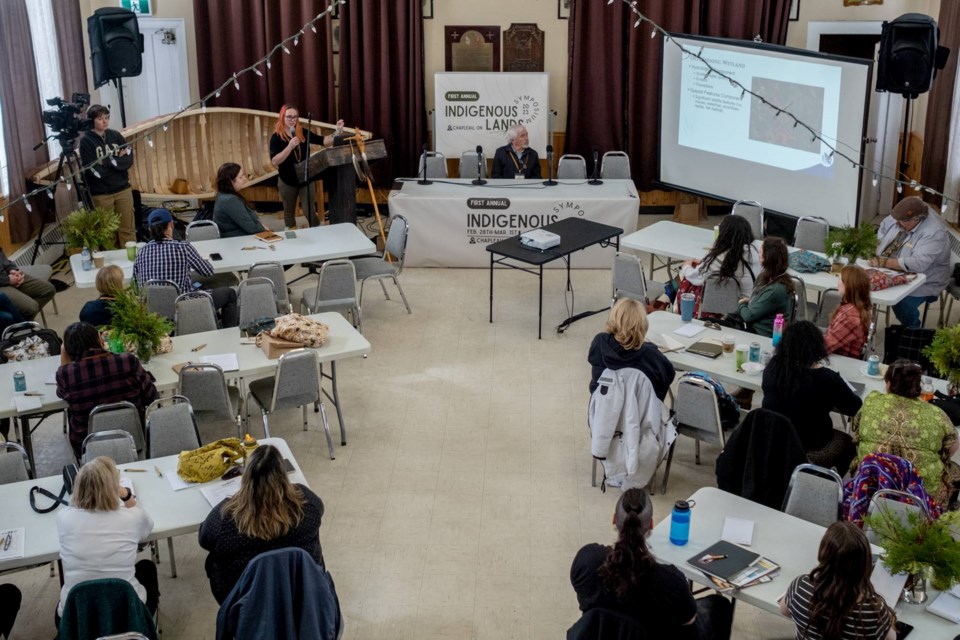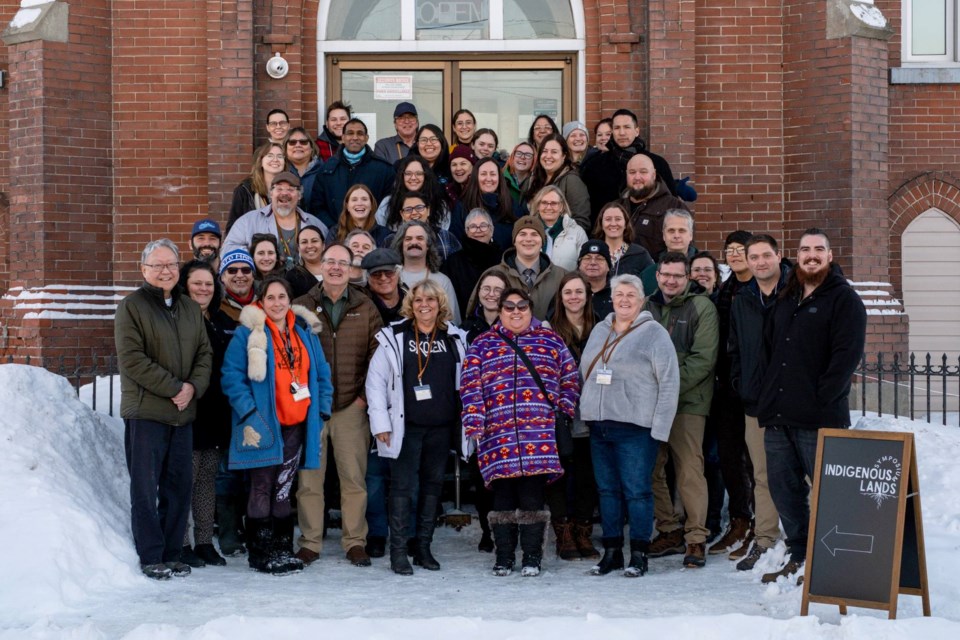A shared value of land conservation through community-building and economic reconciliation is bringing over 150 participants to Timmins from across Ontario and Canada for the Indigenous Lands Symposium, hosted by Wahkohtowin Development, on Jan. 22-25.
Participants representing 25 First Nations, along with industry and government representatives, will gather for four days of keynote speakers, workshops, networking, and more focused on land conservation and cultural activities.
The first symposium was held last year in Chapleau Cree First Nation where Wahkohtowin Development and their innovation centre is located.
Wahkohtowin (pronounced Wah – Koht – Owin) is a Cree word that means kinship and connectedness, and recognizes the complexity and interconnectedness of the people, animals, lands, air, and waters.
Three First Nations in the Northeast Superior area comprise the social enterprise: Chapleau Cree First Nation, Missanabie Cree First Nation, and Brunswick House First Nation.
David Flood, a member of the Matachewan First Nation, who is the general manager for Wahkohtowin Development and an Indigenous registered professional forester, has helped to develop the social enterprise to carry out its strategic plans.
After eight years, he said, they now have 10 employees working on a number of projects including research, cultural revitalization, and economic conservation.
The 2023 symposium hosted 60-plus participants from 14 First Nations from across northeastern Ontario. The event demonstrated that communities want to gather and collaborate on cultural revitalization, emerging conservation technology and the conservation economy.
“The first symposium confirmed the interest and insight to move the agenda forward together,” reflected Flood. “There were people ready to do something.”
The most significant takeaway for Flood was that attendees came away from the symposium commenting they “felt cared for.”

Aside from topics on conservation and discussions on collaborative projects, the program included cultural activities such as tree-tea teachings and a drumming circle. These features are on the agenda again this year with filling a medicine bag and visiting Sewn Home to learn about the traditional process of building tipis and lodges including sustainable pole harvest practices.
Lorraine Rekmans of Serpent River First Nation, a former Green Party president and Indigenous affairs critic, will be the master of ceremonies. Dr. Peggy Smith, senior advisor for the National Aboriginal Forestry Association, will be speaking, and keynote speakers include Dr. Jesse Popp, the Canada Research Chair in Indigenous Environmental Science at the University of Guelph, and Elder Theodore Flamand, both members of Wiikwemkoong Unceded Territory.
A number of sessions will offer new conservation solutions, including Indigenous-led nature-based solutions, ways to finance land/water protection and stewardship, and opportunities for youth to get involved.
As with the last symposium, there will be many opportunities to hold the talking stick and share ideas.
“I think there’s some attitudinal positions of business where they don’t understand economic reconciliation,” Flood said.
“We’ve been calling for this for the last decade to take action. With a commitment to achieve Canada’s Global BioDiversity target of 30 per cent land conservation by 2030, we’re down to the wire. We are down to the last years of the current forest management plans before 2030 hits.
“We’re on a race to the bottom of consuming and cutting all those last vestiges of valuable conservation areas.”
Want more business news from the North? Sign up for our newsletter.
Wahkohtowin would like to see more enterprise within communities and believes the pie is big enough for everyone, Flood said.
An example is the Mushkegowuk Council, which represents eight First Nations in the Hudson Bay Lowlands, which has been in negotiations with both federal and provincial governments regarding a 300,000-square-kilometre conservation zone known as Omushkego Aski to protect peatlands and create jobs.
“Businesses need to engage communities in a culturally appropriate way to achieve epic agreements around forestry planning and implementation,” said Flood. “This is actually nation-building. To build a readiness so that we can actually do this, instead of being stigmatized.”
Flood says the symposium is motivating the spirit of First Nation people. “We’re not sitting on our hands, and we’re not waiting for permission,” said Flood.
He’s been inspired by Perry Bellegarde, the former National Chief of the Assembly of First Nations, who he recalls saying that if they want to make a substantive change across the nation, light the grass fire and inspire all the people to step into occupying the field.
The symposium is bringing communities and their supporters, such as Ducks Unlimited, University of Guelph, David Suzuki Foundation and a number of others who support Indigenous communities to lead progressive collaboration for land sovereignty through reconciliation.
“We don’t know where this is going to go next, but we know it’s going somewhere,” said Flood.




